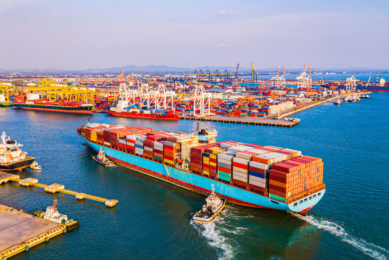Brazilian pork exports until August grow 44.3%

Brazil’s pork exports have grown up 44.3% in volume and 54.5% in revenue from January to August 2020 in comparison to the same period last year.
The most important reason for the increase is the impact of African Swine Fever (ASF) on the Chinese pig supply. On top of that, recent cases of ASF in Germany’s wild boar population are likely to push exports profits even up more.
Growth of pig meat export volume and revenue
In the first 8 months of 2020, Brazilian exporters sold 678,300 tonnes, up from 469,800 in that same timeframe in 2019. In the same period, export revenue totalled US$ 1.488 billion – that was US$ 963.2 million in the previous year.
Stable levels
Ricardo Santin, president of the Brazilian Animal Protein Association (ABPA), commented, “The positive exports trend is supported by an expected increase of domestic pork production, keeping supply for the domestic market at stable levels. Favourable prospects for the sector are expected to remain in the coming months.”
He said that higher foreign exchange revenue reduces the strong impact caused by increasing grain prices and allows investments to face the pandemic consequences.
Asia: the flagship of pork exports
Asia continues to be the flagship of pork exports. The main importer of pork from Brazil, China imported 50,700 tonnes in August alone, a year-on-year jump of 168%.
Another highlight was Hong Kong, with 14,000 tonnes (+ 48%). In the monthly comparison, Vietnam assumes the third position among the importers, with 9,500 tonnes in August. in the previous year, the country imported fewer than 800 tonnes in the same period.
Redesign of the world pig meat market
The confirmation of ASF cases in Germany might cause a shift in world trade market of pigmeat. The country is an important exporter of the product and already has been blocked by several importers, as China, Japan, the Philippines, South Korea and Mexico.
For Brazil, however, it may not lead to an immediate jump in terms of market share. Santin said, “Initially, we have a limiting factor, which is the number of plants enabled. The facilities that sell to China are already close to their total capacity. Countries like the United States and Spain could profit with an increase in the volume shipped to the Chinese and other Asian countries.” Currently, 16 units in Brazil are authorised to ship pork to China.
Prices for pigmeat likely to rise
International prices, on the other hand, are likely to increase even more because Germany used to cover almost 15% of China’s supply of pigmeat. Santin said, “Without Germany, the supply to China and Asia falls significantly; the supply will come down.”











